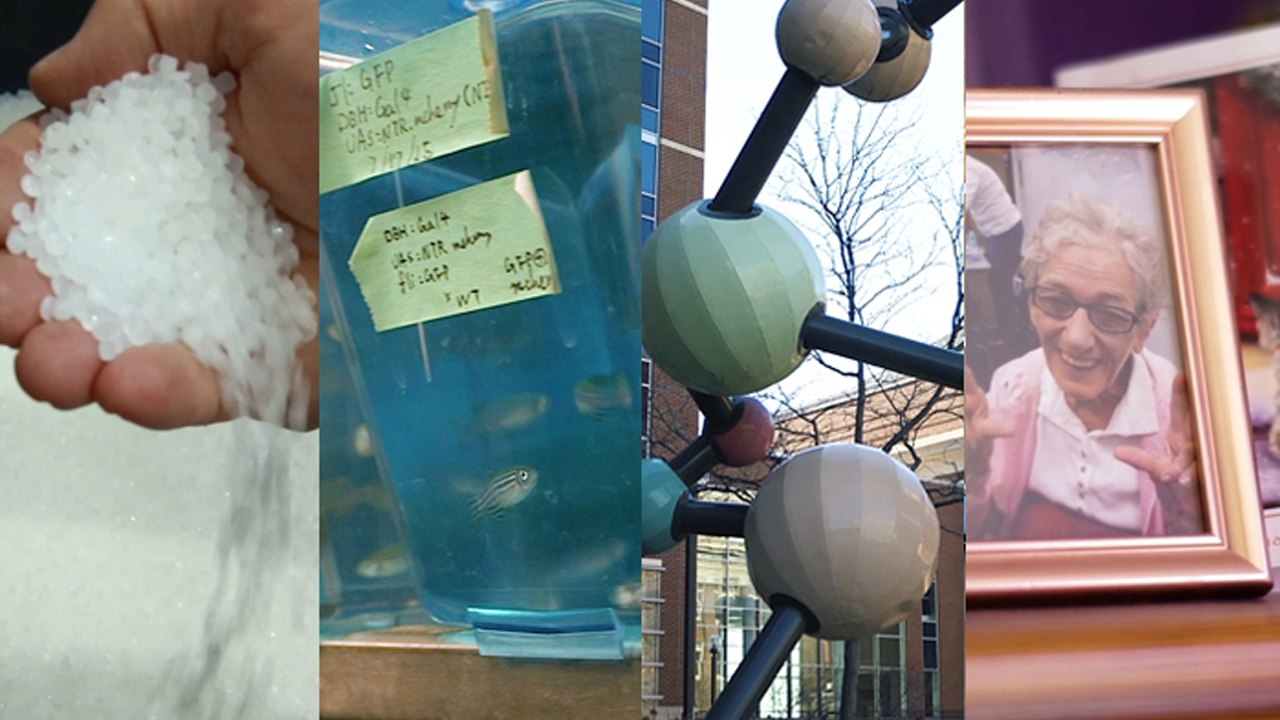
Picture a researcher, and you might think of someone running experiments in a lab, collecting data in the field or piecing together a prototype. But for many researchers, the job doesn’t end when a discovery is made. Increasingly, researchers are helping guide their technologies through development and toward the market.
Last night, the University of Minnesota celebrated the accomplishments of some of these innovative and entrepreneurial researchers. The Inventor Recognition Event, hosted by the Office of the Vice President for Research and the Office for Technology Commercialization, recognized researchers’ breakthroughs and their efforts to bring these innovations beyond the lab to provide growth opportunities for businesses, benefit the public good and improve quality of life in Minnesota and beyond.
The event, held at the McNamara Alumni Center, recognized 220 University inventors whose technology had been licensed or patented between July 2014 and June 2016. During those two years, researchers submitted more than 750 disclosures of new inventions to OTC and filed for nearly 350 patents to protect the intellectual property behind some of these inventions.
Allen Levine, Ph.D., the U’s interim vice president for research, told attendees that public awareness is growing around the importance of moving technologies beyond the lab to address societal challenges across the board, from the spread of disease to environmental contamination.
“Policymakers and opinion leaders have increasingly recognized the importance of innovation and commercialization, while both the National Institutes of Health and National Science Foundation continue to put more emphasis on commercialization and research that makes a global impact,” said Levine. “It is my pleasure to stand before this group of world-class researchers and recognize the way your ideas and discoveries, sometimes at a very fundamental level, can become progress.”
2017 Innovation Awards
During the Inventor Recognition Event, four researchers received Innovation Awards, which recognize the accomplishments of outstanding University innovators who have demonstrated an entrepreneurial spirit, are actively engaged in developing new innovations and transitioning those technologies to the commercial market, and have made an impact on society.
Early Innovator Award
Recognizes a researcher who has been at the University for less than six years, has demonstrated an ambitious entrepreneurial spirit, and is actively engaged in developing new innovations and moving those technologies to the market.
Mikael Elias, Ph.D., College of Biological Sciences
Mikael Elias has developed enzymes that could fight harmful, antibiotic-resistant bacteria in a new, eco-friendly way. Elias’s technology “hijacks” bacteria’s communication mechanism, preventing them from forming the structures that lead to disease and drug resistance. His technology could help the 2 million people who contract antibiotic-resistant strains every year.
Entrepreneurial Researcher Award
Recognizes a researcher who shows an exemplary entrepreneurial spirit by their initiative to develop new technologies and move those technologies from the lab to the market.
Marc Hillmyer, Ph.D., College of Science and Engineering
Marc Hillmyer develops biodegradable plastics made from renewable sources like sugar that can be used to make high-performance foam, rubber, or hard materials. His discoveries also include materials that can filter viruses and bacteria from water, as well as materials that can remove salt from seawater. Hillmyer, along with two fellow plastics researchers, cofounded the startup Valerian Materials based on their advances.
Impact Award
Recognizes a researcher whose innovation has most positively and most broadly impacted global society and improved quality of life.
Perry Hackett, Ph.D., College of Biological Sciences
Perry Hackett’s Sleeping Beauty Transposon System is a gene transfer platform that can be used to reprogram the human immune system to find and attack cancer cells. Up to 80 percent of people who receive therapies based on the technology experience disease remission or complete recovery. Last year, two biotech companies licensed a cancer treatment involving Sleeping Beauty to pharmaceutical company Merck for nearly $1 billion. The technology has also helped launch gene editing companies in other fields, such as agriculture, and has been used in basic research by thousands of researchers across the globe.
Committee’s Choice Award
Recognizes an outstanding researcher or group nominated in any category who has developed a successful innovation and brought it to market, including those that did not require patenting.
Amy Hewitt, Ph.D., College of Education and Human Development
Amy Hewitt led the research, development and management of DirectCourse, an online training program for people who support individuals with developmental disabilities. The curriculum includes training programs focused on personal assistance, caregiving, recovery, and community inclusion. DirectCourse has had a broad impact, providing more than 11 million lessons to over 500,000 learners in 41 states and abroad.